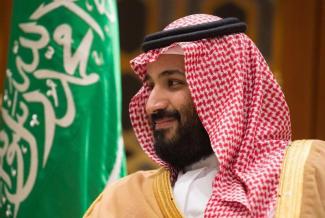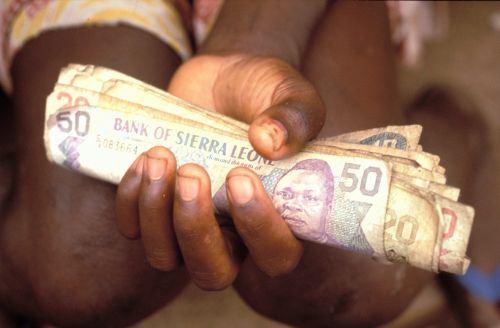Muhammad bin Salman
The Saudi Putin?

These days, Saudi Arabia is politically shaken. In the night of 5 November, Muhammad bin Salman, the king’s son and heir to the throne, gave order to detain 11 high-ranking princes, four ministers, several rich businessmen and three influential media moguls in a sweeping wave of arrests.
This incident has far-reaching impacts. Crown Prince Muhammad bin Salman, called MbS, is the mastermind of the purge. He has been a jack of all trades since his father Salman took power in January 2015. As acting minister of defence, he is responsible for the disastrous war in Yemen. On the other hand, he drafted the ambitious Vision 2030, a domestic economic reform programme (see D+C/E+Z e-Paper 2017/10, p. 26). Not long ago, he also became head of a newly established anti-corruption agency – which orchestrated the recent arrests. The detainees are accused of harming the Saudi nation by embezzling funds and by being „weak souls“.
MbS presents himself as a tough reformer and anti-corruption campaigner. So far, members of the royal family and other minions were considered immune. Such favouritism now belongs to the past. MbS is cleaning up. Especially Saudi Arabia’s young generation celebrates him for doing so. Many of the young people are tired of the elite depriving them of career opportunities and syphoning off millions of dollars. MbS is cleverly taking advantage of their frustration by spreading the message that no one is above the law. No one is safe from him; he is the law.
The fight against corruption is only a pretext though. The crown prince’s main goal is to consolidate his power as the future king. While his father and his father’s predecessors were much older when coming into power, the concept of respecting elders does not appeal to the 32-year-old. Instead, he wants to convince the public that he is the right one to lead the country in difficult times.
There are many crises. The economy is stagnating. Foreign affairs are marked by the conflict with arch rival Iran. Besides Yemen, Saudi Arabia has now also drawn Lebanon into the conflict – that country may sink into chaos too. Rumour has spread that Lebanese Prime Minister Saad Hariri was forced to resign on behalf of MbS and that he has been detained in Saudi Arabia. Hariri and the Saudi leadership strongly denied these rumours. The reason might be that the Shiite Hezbollah militia that allied with Iran was part of the Hariri government. MbS is heating up the demonisation of Iran, but he also has to find a way out of the conflict somehow. Hariri has returned to Lebanon, and how Saudi Arabia will react remains to be seen.
Domestically, MbS is taking the carrot-and-stick approach. He acts hard against possible opponents while presenting himself to the youth as an open-minded ruler who wants to create a new, modern Saudi Arabia. It was MbS who announced that starting from summer of 2018, women may drive cars, and that cinemas will be introduced in the future. His credo is that economic reforms and social liberalisation are necessary; but his top priority is the stability of his position.
His power play is risky however. So far, the Saudi polity was based on an elaborate system of compromise. Within the royal family, princes were provided with jobs and roles to make them docile. Influential businessmen got government contracts that stabilised their loyalty to the king. It was a give-and-take-system. MbS is now breaking with this tacit understanding. He pretends to be leading a morals-driven anti-establishment movement against the very elite to which he belongs himself.
Jamal Khashoggi, a Saudi journalist, who has fallen out of grace in his homeland, calls MbS the “Saudi Putin”, whose aim is to install a one-man rule. Although Saudi Arabia has always been an absolute monarchy, the family used to make decisions together. MbS’s wish to decide everything by himself is shaking up the Saudi-Arabian family tradition.
Sebastian Sons is an expert on matters relating to Saudi Arabia at the German Council on Foreign Relations (DGAP).
sons@af.dgap.org










